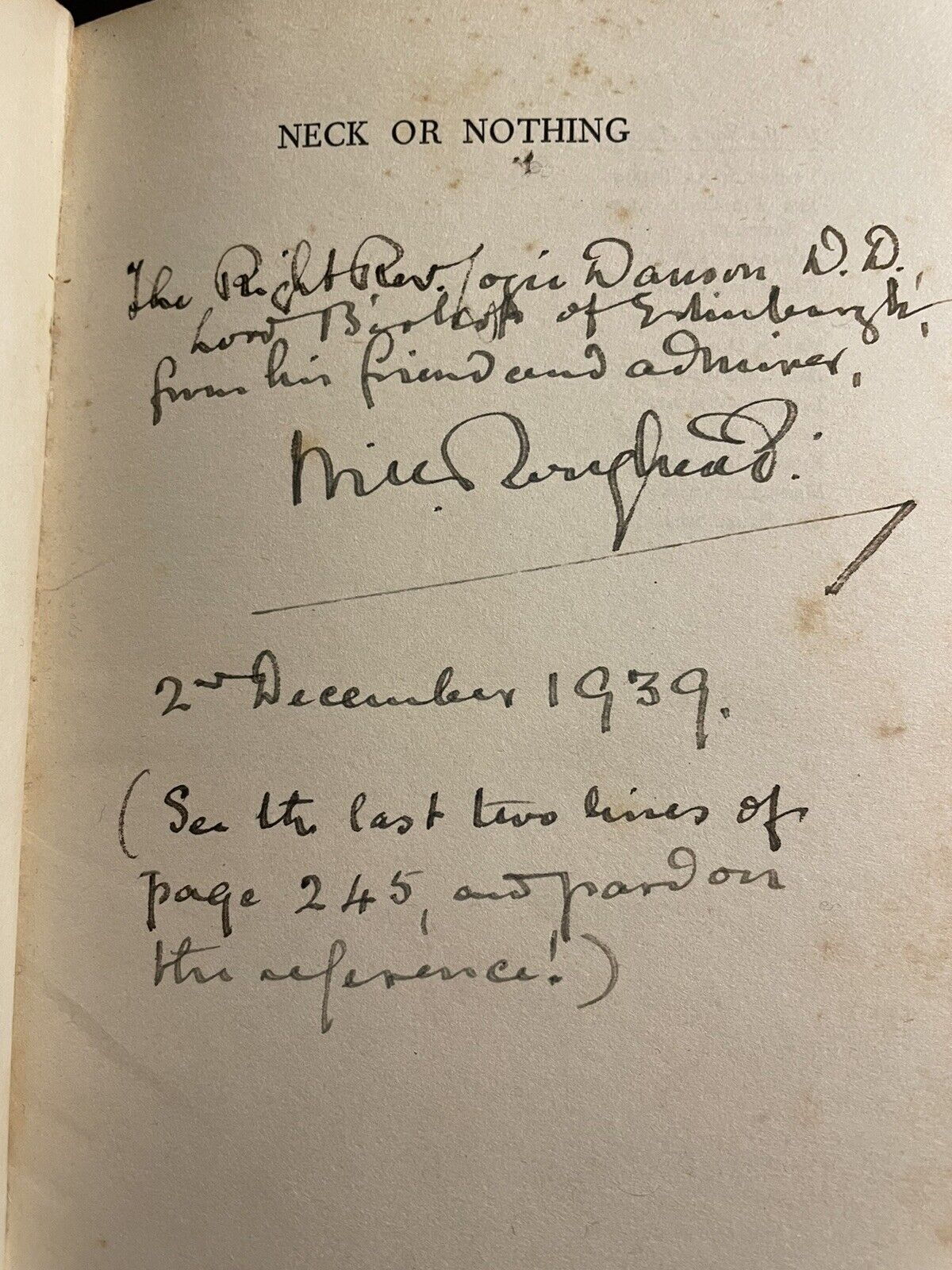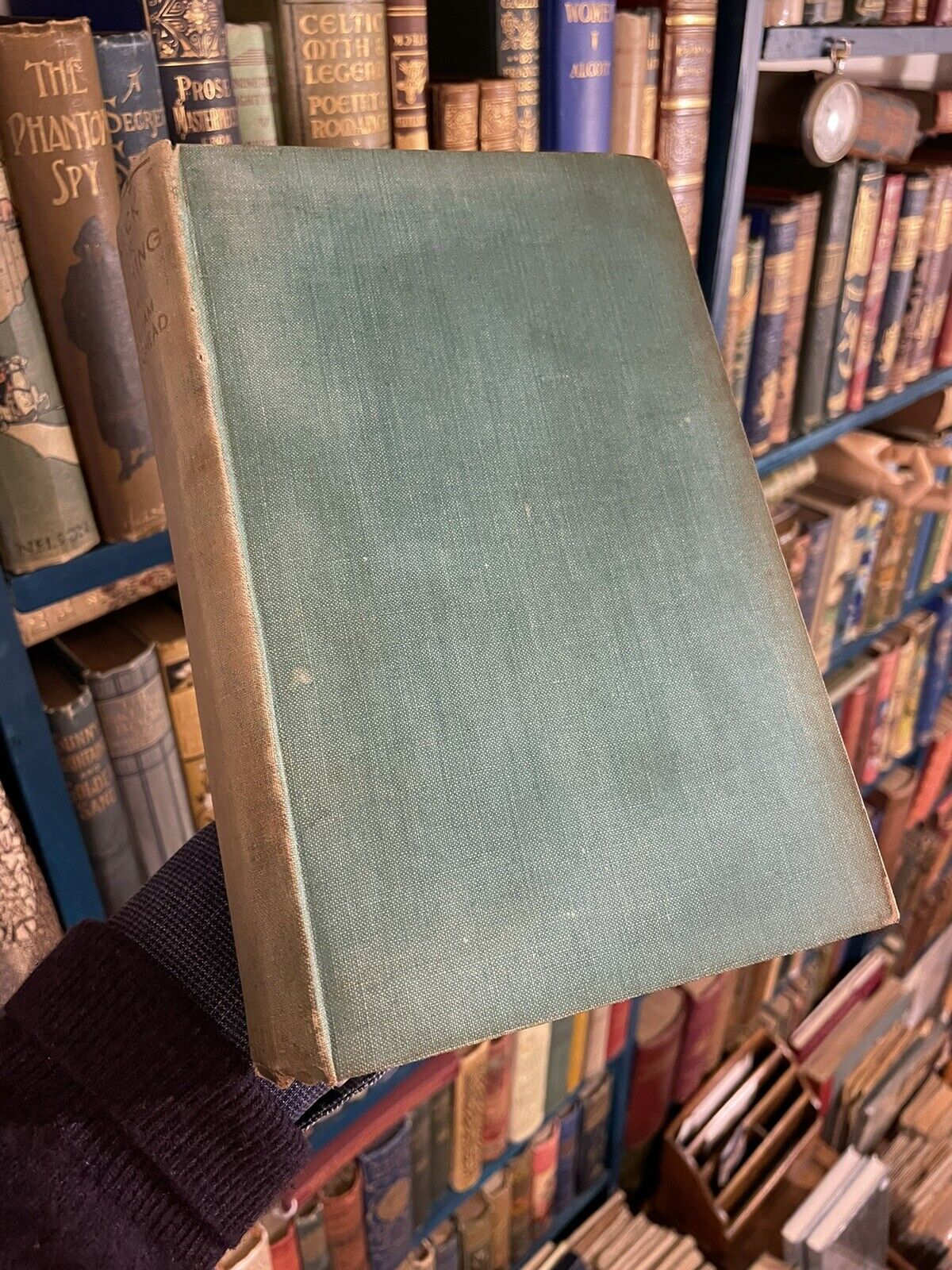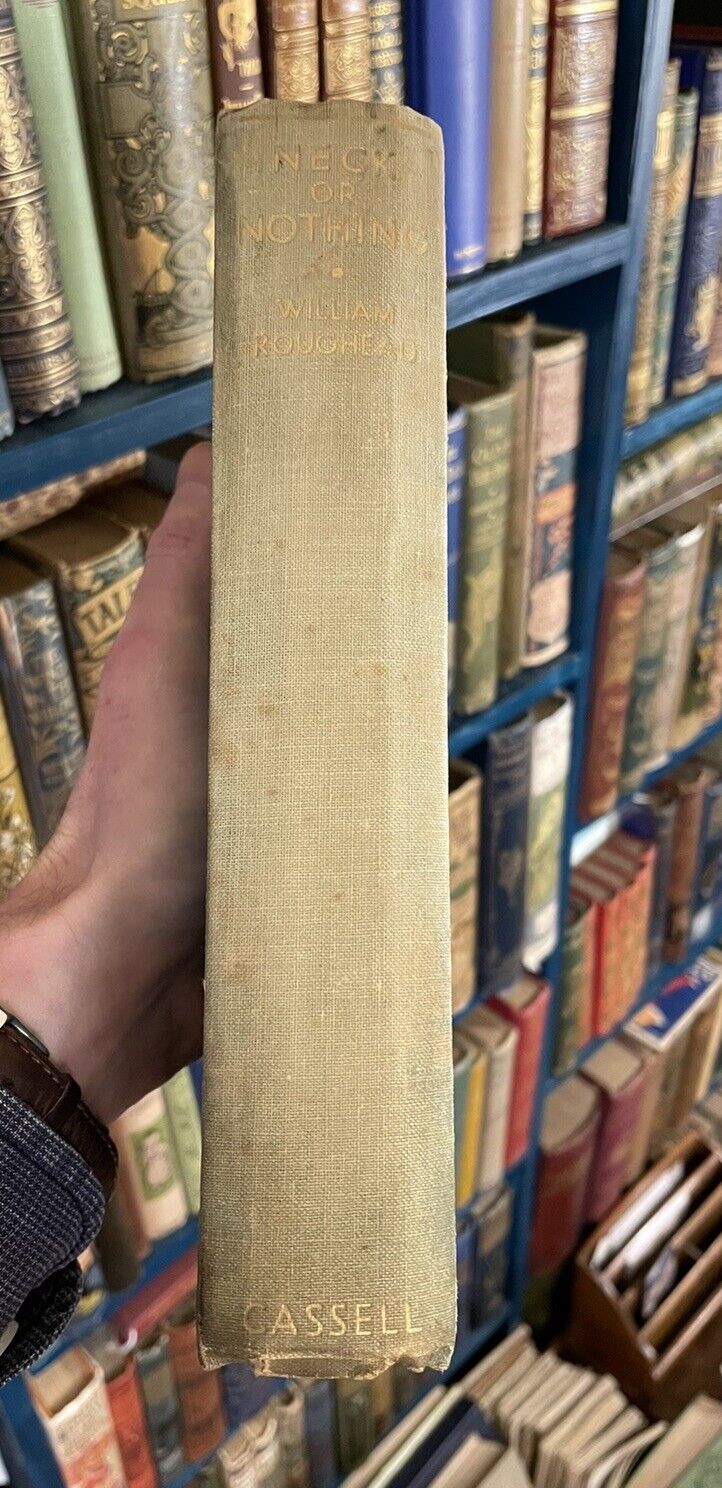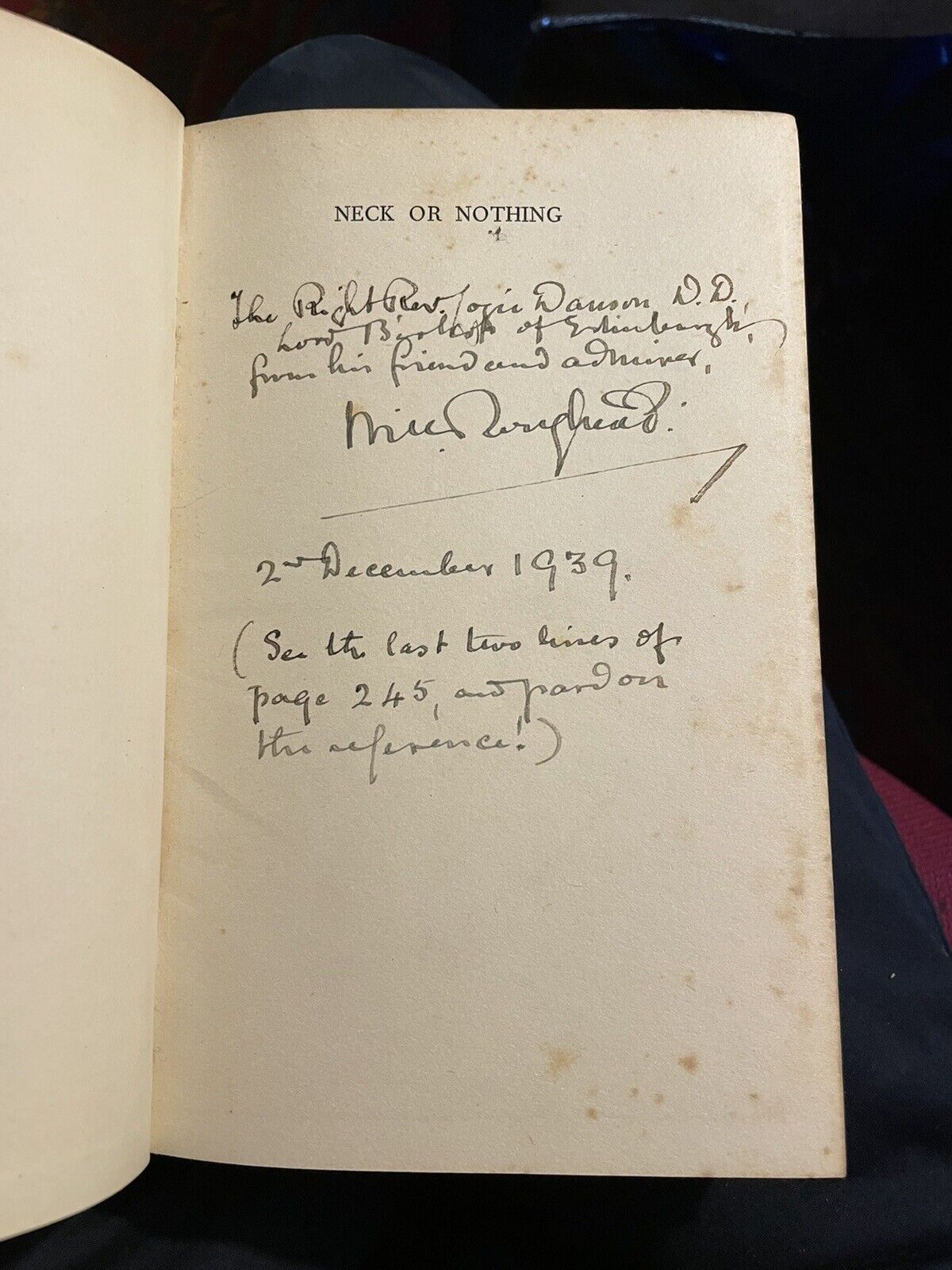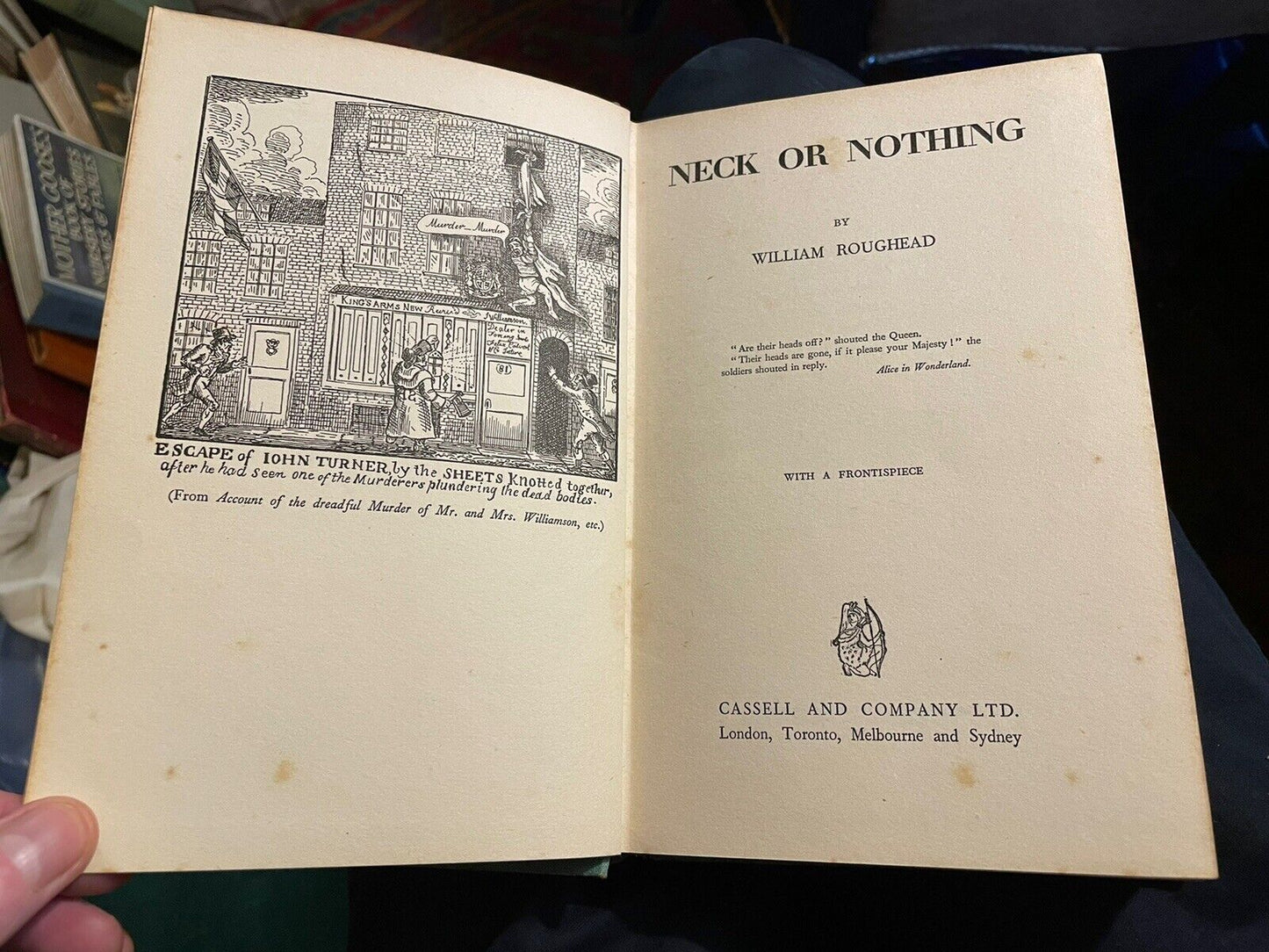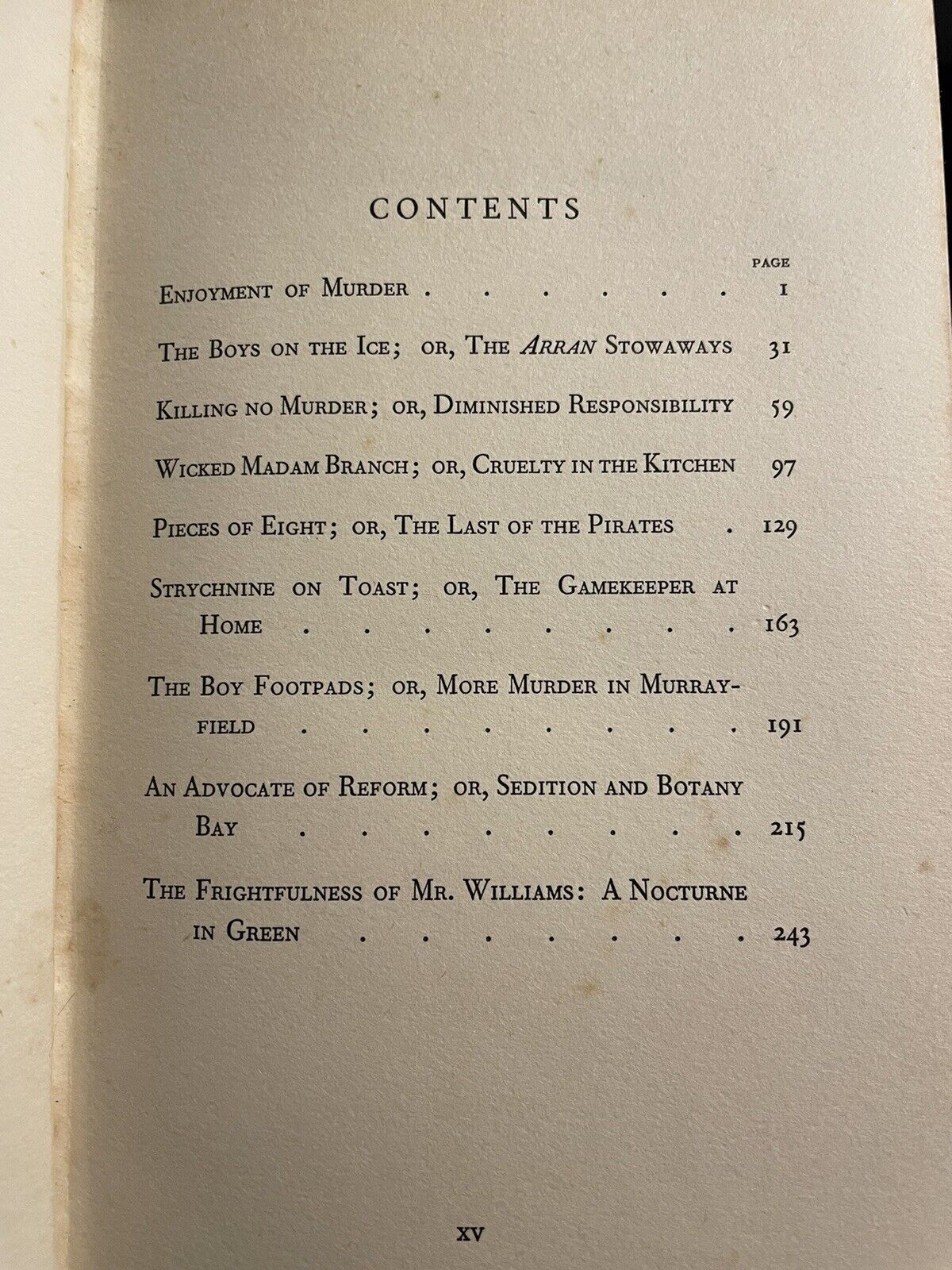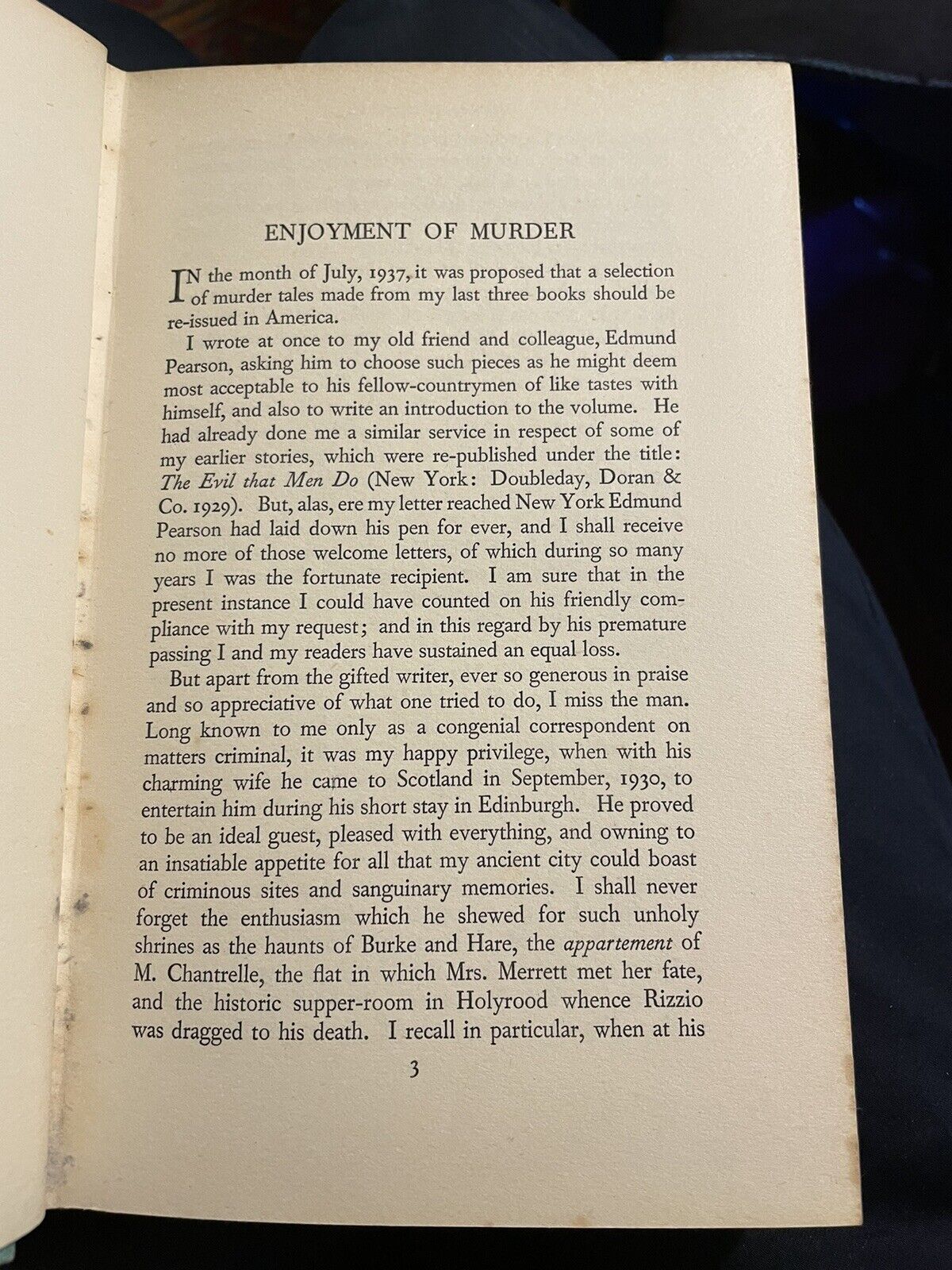The Gently Mad Book Shop
William Roughead (Signed & Inscribed to Bishop Danson) Neck or Nothing
William Roughead (Signed & Inscribed to Bishop Danson) Neck or Nothing
Couldn't load pickup availability
Neck or Nothing
By William Roughead
Published by Cassell and Company, 1939. First Edition. Hardback, cloth binding, 277 pages. Illustrated with a frontispiece.
Inscribed and signed by the author to: "The Right Rev. Logie Danson D.D., Lord Bishop of Edinburgh from his friend and admirer, William Roughead, 2nd December 1939" and under this the author has written: "See the last two lines of page 245, and pardon the reference". On page 245 Roughead mentions that he knows a number of respectable people who read and enjoy his books and mentions that one of them is "even a Bishop".
CONDITION
The cloth binding is worn and faded but is strong with no cracking to the hines. Endpapers good with usual age-toning. All contents present and pages good throughout. Overall good.
Ernest Denny Logie Danson (14 June 1880 – 9 December 1946) was an Anglican bishop in the first half of the 20th century.
He was born into a distinguished clerical family — his father was Myers Danson, Dean of Aberdeen and Orkney — on 14 June 1880 and educated at Trinity College, Glenalmond and Aberdeen University. He was ordained deacon in 1906 and priest in 1907 and began his career with a curacy at St Paul's Cathedral, Dundee. From 1906 he was a Missionary Priest in Southeast Asia eventually becoming Bishop of Labuan and Sarawak.
He then returned to England as a Canon Residentiary of Carlisle Cathedral and Assistant Bishop of Carlisle (both 1931–1938) before being appointed Provost of St Mary's Cathedral, Edinburgh and an Assistant Bishop of Edinburgh. He was then elected diocesan Bishop of Edinburgh in 1939. Four years later he was elected Primus of Scotland; ill-health caused him to resign as Primus in May 1946, and to resign his See in September before his death on 9 December 1946.
William Roughead (1870–1952) was a Scottish lawyer and amateur criminologist, as well as an editor and essayist on "matters criminous". He was an important early practitioner of the modern "true crime" literary genre.
Roughead held the title of Writer to Her Majesty's Signet as a Scottish solicitor. As the years progressed, Roughead practised law less and increasingly plied a trade as an unofficial historian of crime. He marks this transition from the year 1889, when at the age of nineteen, he skipped his apprentice work at the law firm of Maclaren and Traquair to attend the trial of Jessie King, the murderous baby-farmer of Stockbridge (an experience he described in his essay "My First Murder: Featuring Jessie King", In Queer Street, 1932). For roughly the next six decades, Roughead attended almost every murder trial of any importance at the High Court of Justiciary. These experiences provided the material he would submit for publication in the Juridical Review, a monthly Scottish legal journal; in later years, he would collect his contributions to the Juridical Review as well as much new material into several anthologies of essays.
His first collection was published in 1913 under the title Twelve Scots Trials, containing a dozen "adventures in criminal biography". The collection included among its twelve cases two notable trials, that of Katharine Nairn and John Watson Laurie, which Roughead was to revisit in more detail later in his career. The title of his first collection apparently was a mild disappointment to Roughead, stating in his "Personal Preface" to his third collection, Glengarry's Way and Other Studies, that "...I have always considered that my venture suffered in its baptism...of those three fateful words two at least were unhappily chosen. 'Scots' tended to arouse hereditary prejudice...'Trials' suggested to the lay mind either the bloomless technicalities of law reports or the raw and ribald obscenities of the baser press." He ended his lament upon his title with characteristic humour, "Had they been a 'baker's dozen' the game would have been up indeed."
(Desk Top Shelf)
Share with someone
